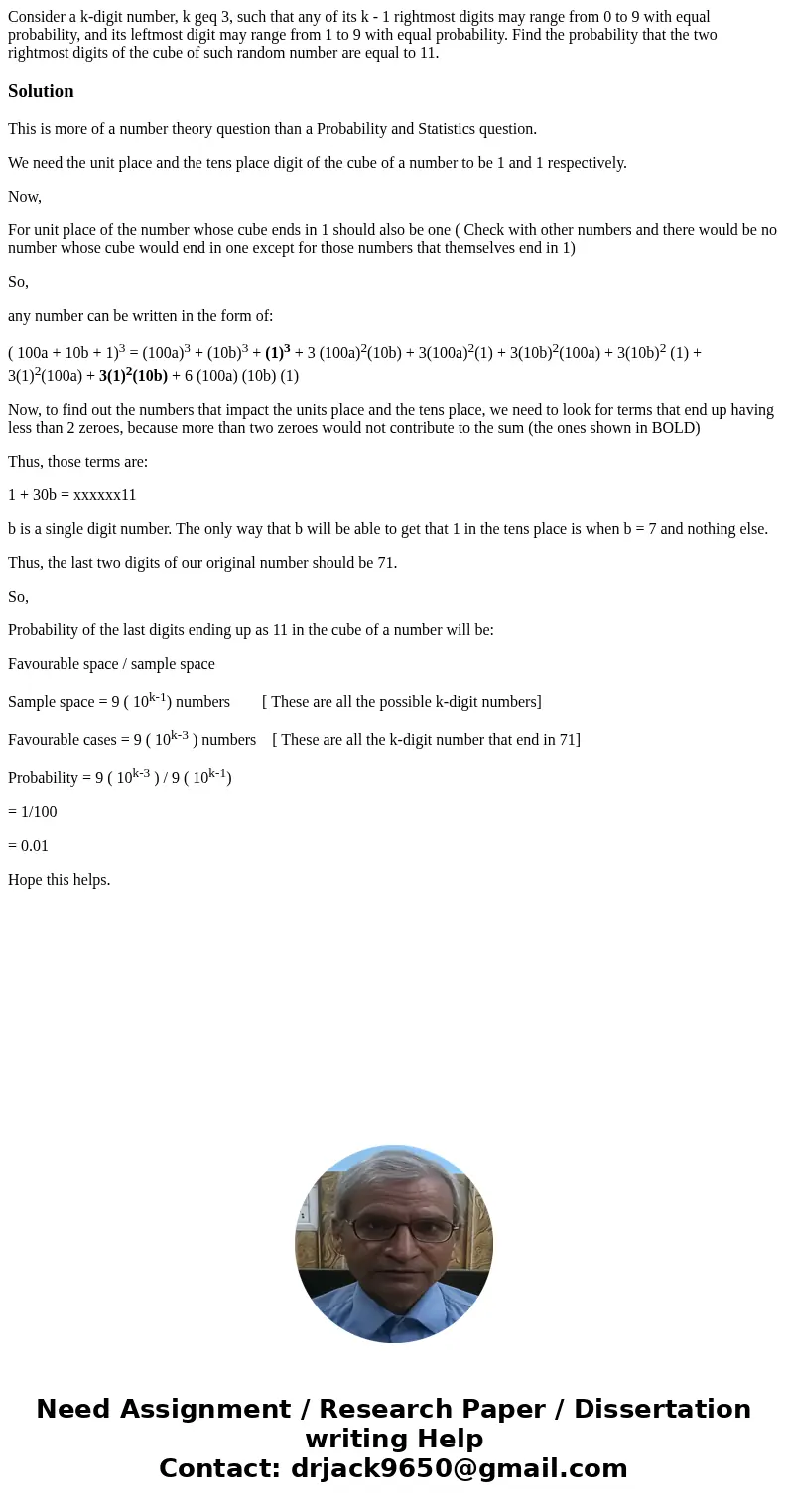Consider a kdigit number k geq 3 such that any of its k 1 r
Solution
This is more of a number theory question than a Probability and Statistics question.
We need the unit place and the tens place digit of the cube of a number to be 1 and 1 respectively.
Now,
For unit place of the number whose cube ends in 1 should also be one ( Check with other numbers and there would be no number whose cube would end in one except for those numbers that themselves end in 1)
So,
any number can be written in the form of:
( 100a + 10b + 1)3 = (100a)3 + (10b)3 + (1)3 + 3 (100a)2(10b) + 3(100a)2(1) + 3(10b)2(100a) + 3(10b)2 (1) + 3(1)2(100a) + 3(1)2(10b) + 6 (100a) (10b) (1)
Now, to find out the numbers that impact the units place and the tens place, we need to look for terms that end up having less than 2 zeroes, because more than two zeroes would not contribute to the sum (the ones shown in BOLD)
Thus, those terms are:
1 + 30b = xxxxxx11
b is a single digit number. The only way that b will be able to get that 1 in the tens place is when b = 7 and nothing else.
Thus, the last two digits of our original number should be 71.
So,
Probability of the last digits ending up as 11 in the cube of a number will be:
Favourable space / sample space
Sample space = 9 ( 10k-1) numbers [ These are all the possible k-digit numbers]
Favourable cases = 9 ( 10k-3 ) numbers [ These are all the k-digit number that end in 71]
Probability = 9 ( 10k-3 ) / 9 ( 10k-1)
= 1/100
= 0.01
Hope this helps.

 Homework Sourse
Homework Sourse